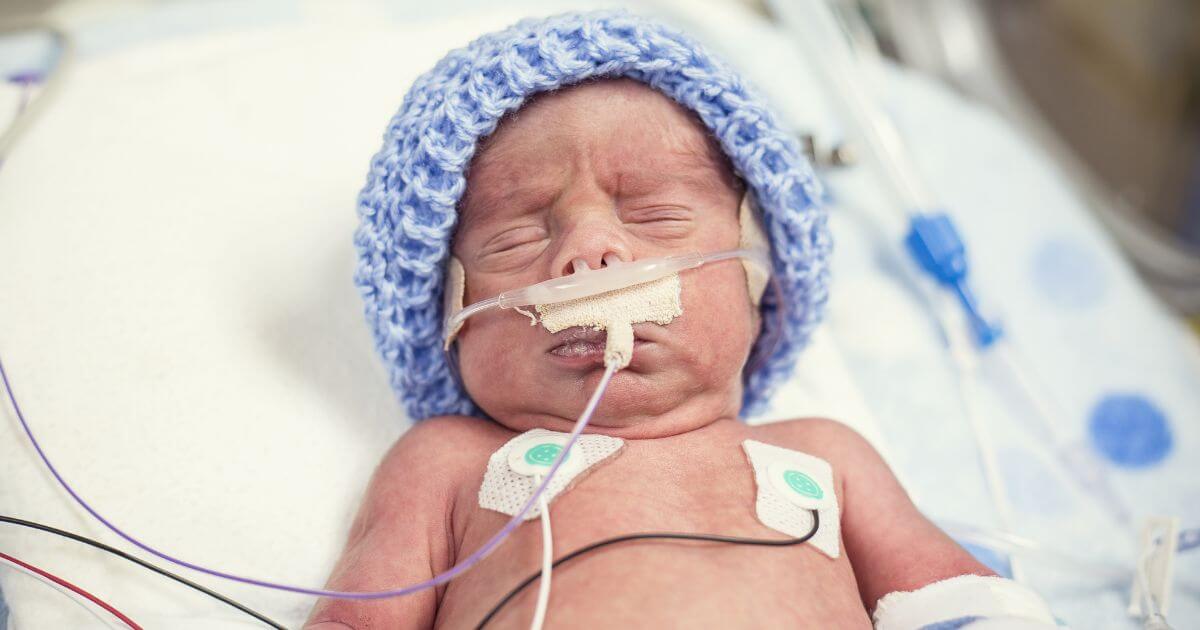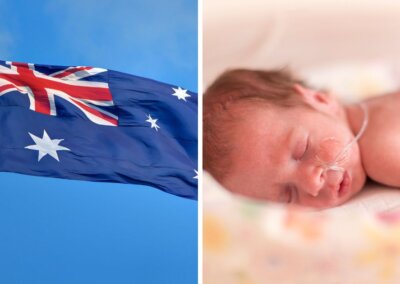Parents and doctors expressed “heartfelt joy” as baby Zedrick, born one week before the UK abortion limit, was allowed to go home. Born four months early and weighing only 500 grams, doctors said he is the lowest weight baby ever discharged from the NMC Royal Hospital in UAE.
“Generally, babies in this condition are lost and we were praying that this baby would get better”
Zedrick Madoginog defied expectations of doctors and beat the odds to make it home. The little boy was born four months early and had to be resuscitated at birth. Dr Pooja Agrawal, a specialist neonatologist at the hospital, said “Generally, babies in this condition are lost and we were praying that this baby would get better”.
Zedrick was on a ventilator for six weeks, fought off life-threatening infections, and received laser eye surgery. He is now going home after a 106-day stay at the hospital in Sharjah.
Restarting his heart
When the little 500-gram boy was born, his heart was not beating and he was not breathing. He was still in an intact amniotic sac. Physicians pierced the sac and resuscitated Zedrick, managing to restart his heart and get him breathing for the first time.
Valuing every moment of the miracle of life
Zedrick’s parents, Maricel and Keith Madoginog, didn’t know if their little boy would survive and come home with them from the hospital. Maricel, 35, from the Philippines, said that she spent her time “valuing every passing moment that I saw my son breathe and fight to stay alive”.
Despite all of the challenges he faced, Zedrick’s last three neurosonograms have shown no abnormalities and doctors are hopeful that his development will follow a normal trajectory. This almost miraculous turn of events has given hope to the doctors in the hospital who knew that the odds were against him.
Improving outcomes for premature babies
A study, ‘Mortality, In-Hospital Morbidity, Care Practices, and 2-Year Outcomes for Extremely Preterm Infants in the US, 2013-2018’, by Dr Edward F Bell of the University of Iowa, found that from 2013 to 2018, with infants born between 22 and 28 weeks gestation, “survival to discharge occurred in 78.3%, and was significantly improved compared with a historical rate of 76.0% among infants born in 2008-2012”.
The study, which took place between 2013 and 2018, assessed 10,877 infants born between 22 and 28 weeks gestation in 19 academic medical centres across the US.
This means that almost four out of five extremely prematurely born babies survived and were able to be assessed at 22-26 months corrected age (22-26 months from their due date) for a number of health and functional outcomes.
Born just one week before UK abortion limit
In the UK, abortion is allowed up to 24 weeks of pregnancy, and up until birth in instances where there is a risk to the mother’s life or in cases of fetal disability.
Right To Life UK spokesperson Catherine Robinson said “Zedrick’s story is so encouraging and shows the amazing advances in medicine that are allowing babies born extremely premature to survive”.
“It is horrifying to think that this little boy could have been aborted in the UK at the very same age that he was born”.
“As survival rates for babies born before 24 weeks are increasing, it is overwhelmingly clear that the UK’s abortion law is completely outdated and does not reflect evidence. The abortion law in the UK needs to be urgently changed to protect the lives of children like Zedrick”.












